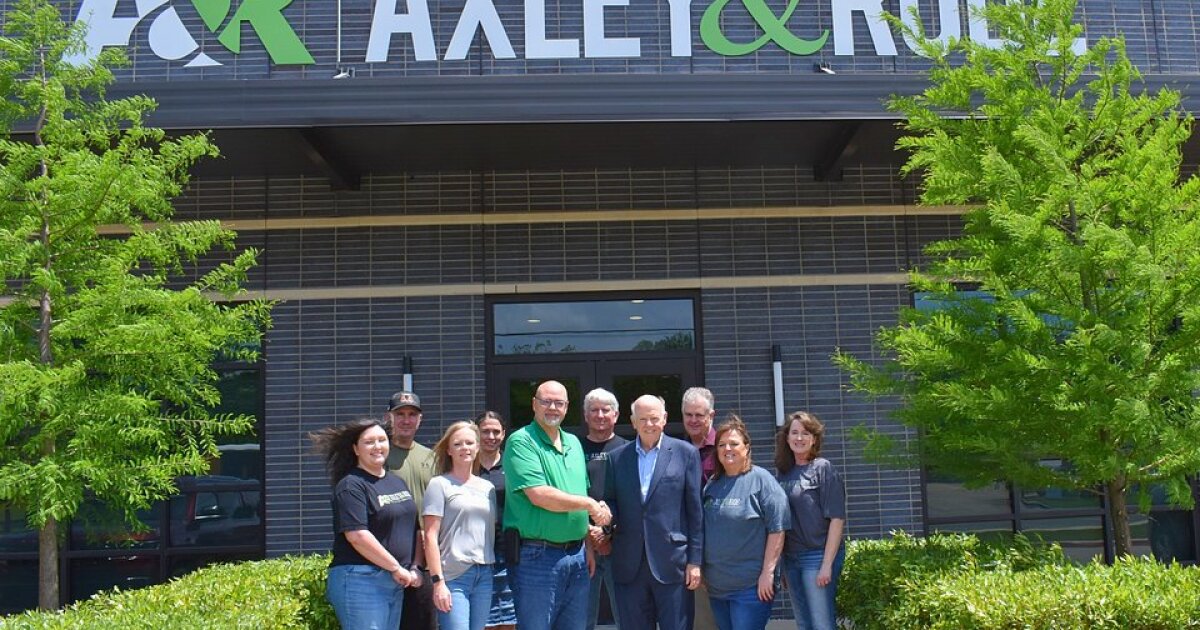Few puzzles are more complex that running a wealth management practice, which combines all the usual challenges of an accounting firm — from staff shortages and succession issues to the introduction of disruptive technologies like artificial intelligence — with volatile markets, skittish clients whose expectations change at the drop of a hat, an uncertain regulatory environment and an ever-fluctuating economy, and a constant flow of new and confusing investment options.
What’s more, it’s a puzzle that even CPA financial planners as successful as this year’s Wealth Magnets can never hope to fully solve, since the factors impacting it are always changing — as is the practice area itself.
“I’ve had a front-row seat to the rapid evolution of wealth management, and it’s clear we’re at a critical crossroads,” explained Matthew Delaney, managing partner of his eponymous firm in Santa Rosa, California. “One of the biggest challenges we face today is meeting the rising expectations of a new generation of investors … [who] want transparency, accessibility, and personalized guidance that fits seamlessly into their digital lifestyles. At the same time, increasing regulatory complexity and the ever-present threat of cybersecurity breaches add new layers of difficulty for firms trying to stay agile and responsive.”
(See this year’s ranking of the Top Firms by AUM here.)
Making the puzzle even more complicated is that it needs to be constantly worked out over time, handling the immediate crush of work while also laying the groundwork for the future.
“We’re focused on balancing long-term goals with daily responsibilities,” said John Valleau, president of Skokie, Illinois-based ShankerValleau Wealth Advisors. “When clients need us, they come first. But it’s easy to lose sight of the bigger picture amid day-to-day demands. To stay aligned, we now hold weekly team meetings to share ideas, discuss trends, and review our goals.”
And all that has to be managed while firms themselves are changing, metamorphosizing as a result of their own success.
A good problem to have
In fact, the most common challenge that 2025’s Wealth Magnets are puzzling over is how to handle being so good at what they do.
This year, the 150 top CPA financial planners in the country reported $311 billion in assets under management, up from last year’s $295 billion, and 60 reported more than $1 billion in AUM, up from 53 in 2024.
Put simply, many of them are expanding rapidly, and that can strain an accounting firm in multiple ways.
At Steel Tower Investments in Pittsburgh, “Our greatest challenge is managing growth effectively,” according to its president, Elizabeth Urish. “As we continue to scale, we remain focused on delivering meaningful value to our clients by strategically adding key talent and enhancing our infrastructure and processes. Staying disciplined and focused on the fundamentals is essential to sustaining long-term success.”
Maintaining a personal touch as a practice grows is a concern for many of this year’s Wealth Magnets, including Braintree, Massachusetts-based Napier Financial.
“One of the biggest challenges we’re currently facing is scaling and growing the practice while maintaining the same high level of personalized client service,” said business operations manager Prescott Busk. “As we expand, managing bandwidth effectively becomes critical. To address this, we’re streamlining internal processes, leveraging technology for greater efficiency, and being strategic about team growth to ensure we continue elevating the quality of service our clients receive.”
It’s rare that expansion only strains one aspect of a firm; usually it brings pressure in multiple areas.
“Our firm is experiencing extreme growth, which is both exciting and demanding,” explained Trevor Hodges, chief operating officer of Parsippany, New Jersey-based Sax Wealth Advisors. “With that comes the need to scale everything: systems, processes, communication, and most importantly, our people. Scaling the business intelligently is a top focus. We’re investing heavily in infrastructure-tech, workflows, and operational support, to make sure the client experience remains seamless as we grow. We’re also being intentional about who we hire, making sure every addition to the team adds both talent and cultural alignment. … In short, we’re growing fast in a volatile environment, so staying client-centered, people-focused, and process-driven is what’s keeping us on track.”
“The biggest issue our wealth management practice is currently facing is finding internal efficiencies to better serve our clients,” added Steve Neher, managing member of Wenatchee, Washington-based Cordell, Neher & Co. “As our practice continues to grow, we recognize the importance of sustaining our service quality and adapting to evolving demands. By leveraging technology, we strive to streamline daily tasks for our staff, allowing them to focus on meaningful client interactions and provide personalized solutions where they are most needed.”
The strain of rapid growth is felt not just with high-level concerns like quality control and maintaining strong client relationships; growth also means more daily tasks for everyone in the firm.
At Frisco, Texas-based Cain Watters & Associates, for instance, “Managing growth is an ongoing issue, especially with the numerous investment operational tasks like requests to open new accounts, move money, and perform other investment operations tasks,” said chief marketing officer Erin Jeffries. “To handle these issues, we are expanding our investment operations team and looking for a more efficient process.”
Efficiency is available to everyone, and in multiple ways; finding extra staff, on the other hand, is as much a problem for the Wealth Magnets as managing their growth.
The people problem
Staff shortages are plaguing every part of the accounting profession, of course, and CPA financial planners are feeling the pain as much as anyone.
“Acquiring talent and quality advisors to execute the business model of building high-performing teams inside our accounting firm office locations” is a major challenge for Dallas-based Level Four Advisory Services, according to chief executive officer Edmon “Jake” Tomes. “We are investing in a recruiting and sales team to identify and secure talent from banks, wirehouses and regional brokerage firms, while executing an aggressive strategy for RIA acquisitions.”
The solutions vary from firm to firm, from higher compensation and extra bonuses, to hiring more nonaccountants or taking advantage of opportunities in technology or outsourcing. Among those who are focusing on hiring, some are taking a long-term approach to talent attraction and retention, like Minneapolis’ Boulay.
“We have to stay focused on creating paths to ownership for our best people,” explained its president, Jay Brown. “We are committed to staying independently owned and operated — and we believe that will be a key differentiator for talent.”
That kind of long-term thinking can also uncover some long-term problems.
“We are good at developing staff into advisors, but the next hurdle is developing the next generation into people that can generate new business,” said Joe Pitzl, managing partner of St. Paul, Minnesota-based Pitzl Financial. “Our founding partners have grown organically from scratch to where we are today. The next wave of growth falls onto the next generation of the firm.”
At CRA Financial in Northfield, New Jersey, co-managing member Matthew Reynolds also noted the challenge of succession planning.
“Although it is more than a decade out, monetization for the founders is an issue because valuations make anything close to market value almost impossible for an internal transfer,” he said. “We’re still searching for a viable solution.”
Finding the talent — whether to handle immediate work or to shore up the long-term viability of the firm — is only the first step; making sure they’re up to the work is a perennial problem.
“One of the biggest challenges we are currently navigating is ensuring consistent training across our team, especially as we grow and onboard new talent,” said Ryan McEntire, a director and chief compliance officer with Brown Edwards Wealth Strategies in Lynchburg, Virginia. “With the evolving complexity of financial planning and increasing client expectations, it is critical that our advisors and support staff are not only technically proficient but also aligned in how we deliver value and service.”
“To address this,” he continued, “we are building a more structured internal training program that includes ongoing education, case study reviews, and mentorship. We also launched an internship program designed to create a pipeline of future talent. This initiative allows us to train individuals early in their careers, expose them to real-world client work, and assess their cultural fit before moving them into full-time roles. The combination of formalized training and the internship program is helping us ensure we are equipped to meet client needs.”
Problems and solutions
Challenges involving technology have the greatest potential upside for CPA financial planners: If they can solve the puzzles that come with new tech tools — from cybersecurity and data privacy issues to simply keeping up with the flood of new solutions — they stand to revolutionize their practices.
“The adoption of emerging technologies in wealth management has the potential to reshape our industry, and with it comes challenges and opportunities both internally and externally,” said Laurie Peer, president of RKL Wealth Management in Lancaster, Pennsylvania. “From the responsibility to safeguard sensitive information to helping our clients navigate the use of digital tools with confidence, nearly every aspect of our work involves a degree of change management and technology adoption that’s redefining the way we work.”
“We’re invested in fostering a culture of innovation, encouraging exploration of new technologies, and actively seeking feedback to refine our strategies,” she continued. “Through strategic investments and client-centric solutions, RKL Private Wealth is well-positioned to deliver an enhanced client experience that leverages the efficiencies of technology while capitalizing on our true differentiator — personal connection and alignment around our clients’ most significant aspirations.”
Of course, no discussion of technology can avoid touching on artificial intelligence, which is still in its early days, but is taking up a lot of mindspace in the profession.
“As the development, availability and accessibility of AI-based applications has increased, we’ve had to evaluate the use case for said applications and devote time and resources to broadscale testing and deployment through to our end clients,” said John Lesser, group managing partner of Southfield, Michigan-based Plante Moran Financial Advisors. “While many of these applications can and will allow us to be more efficient as advisors, they also present unique challenges to a client-centric business, as ours is. First and foremost, we need to ensure we are doing everything we can to maintain client confidentiality and not expose our clients to unnecessary cybersecurity risks or data breaches. Second, we don’t want to lose our personal touch or have automation take away from our interpersonal relationships with our clients.”
The eternal puzzle
Of all the riddles CPA financial planners face, the one that truly can never be solved lies at the intersection of the volatility of markets and the economy, and the hopes and fears of clients.
Bryon Gragg, senior partner at Shelby, North Carolina-based Gragg Financial, shared a concern that keeps all of his fellow Wealth Magnets up at night, year in and year out: “Keeping clients focused on their long-term plan rather than current market conditions. We spend a lot of time educating clients upfront of the nature of investing; there are times that can be uncomfortable but it’s the price to get the long-term results.”
Sax Wealth Advisors’ Hodges echoed that: “One of the biggest challenges we’re facing right now is managing through market uncertainty while continuing to grow at an aggressive pace. Clients are understandably anxious, and staying ahead of their questions, while continuing to provide clarity and confidence, is a constant priority.”
This year, uncertainty in Washington, D.C., is playing a larger role than usual in challenging wealth managers, both in terms of client concerns and the tax and regulatory environment. This is making it harder to keep clients on track, and to help them manage change.
“The current political climate has resulted in some clients being very anxious about the market and others very optimistic,” said Kellie Masters, director of operations and chief compliance officer of Wealth Advisors of Iowa, in West Des Moines. “We try to temper expectations on both sides and are encouraging clients to stick to their long-term plans.”
“Our advisors have to balance investment advice with tax planning and tax filing deadlines,” added Morgan Tesoriero, chief compliance officer of Joel Isaacson & Co. in New York City. “With the current administration and the uncertainty in the market surrounding policy decisions, it was especially time-consuming and challenging to balance the tax work and client fears about the economy/market.”
Putting the pieces together
With so many pieces to keep track of, the puzzle of running a wealth management practice can seem insoluble — and as we’ve noted, in some ways it is; there are permanent challenges involved in helping clients achieve their financial goals (often coming from the clients themselves!).
But the search for solutions itself can yield benefits, according to California’s Delaney: “The good news? These challenges present real opportunities for innovation and growth. At our firm, we’re embracing technology not just to keep up, but to lead. … But technology alone isn’t enough — it’s the human insight behind it that makes the difference. That’s why we’re committed to a hybrid advisory model that blends digital efficiency with the deep, trusted relationships our clients value. The path ahead won’t be without its hurdles, but with the right strategy, we can turn today’s challenges into tomorrow’s strengths.”


 Economics1 week ago
Economics1 week ago
 Accounting1 week ago
Accounting1 week ago
 Blog Post4 days ago
Blog Post4 days ago
 Economics1 week ago
Economics1 week ago
 Personal Finance1 week ago
Personal Finance1 week ago
 Economics6 days ago
Economics6 days ago
 Personal Finance1 week ago
Personal Finance1 week ago
 Finance1 week ago
Finance1 week ago












